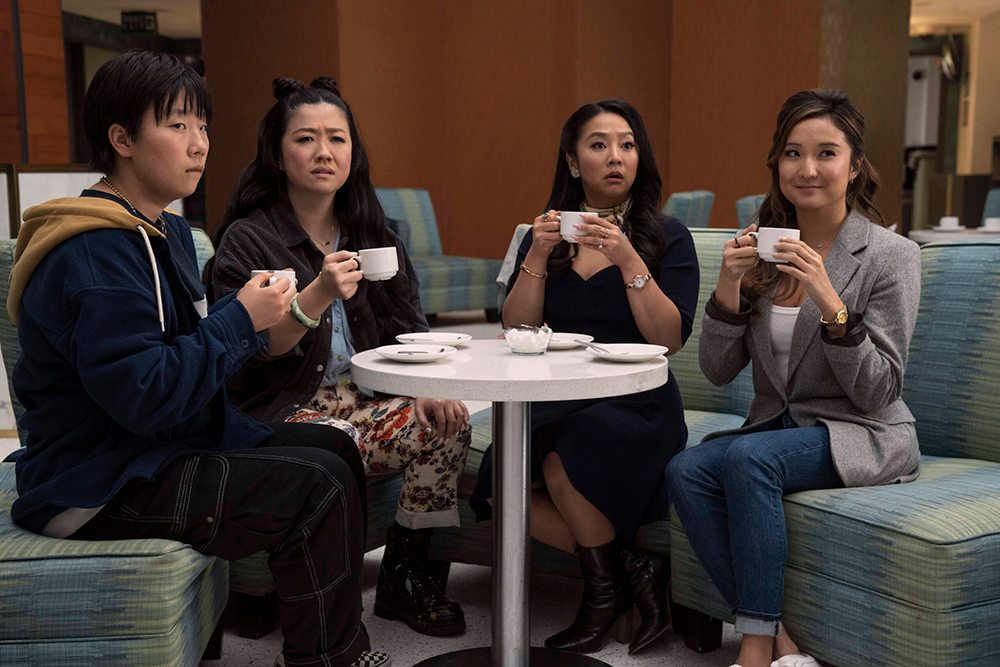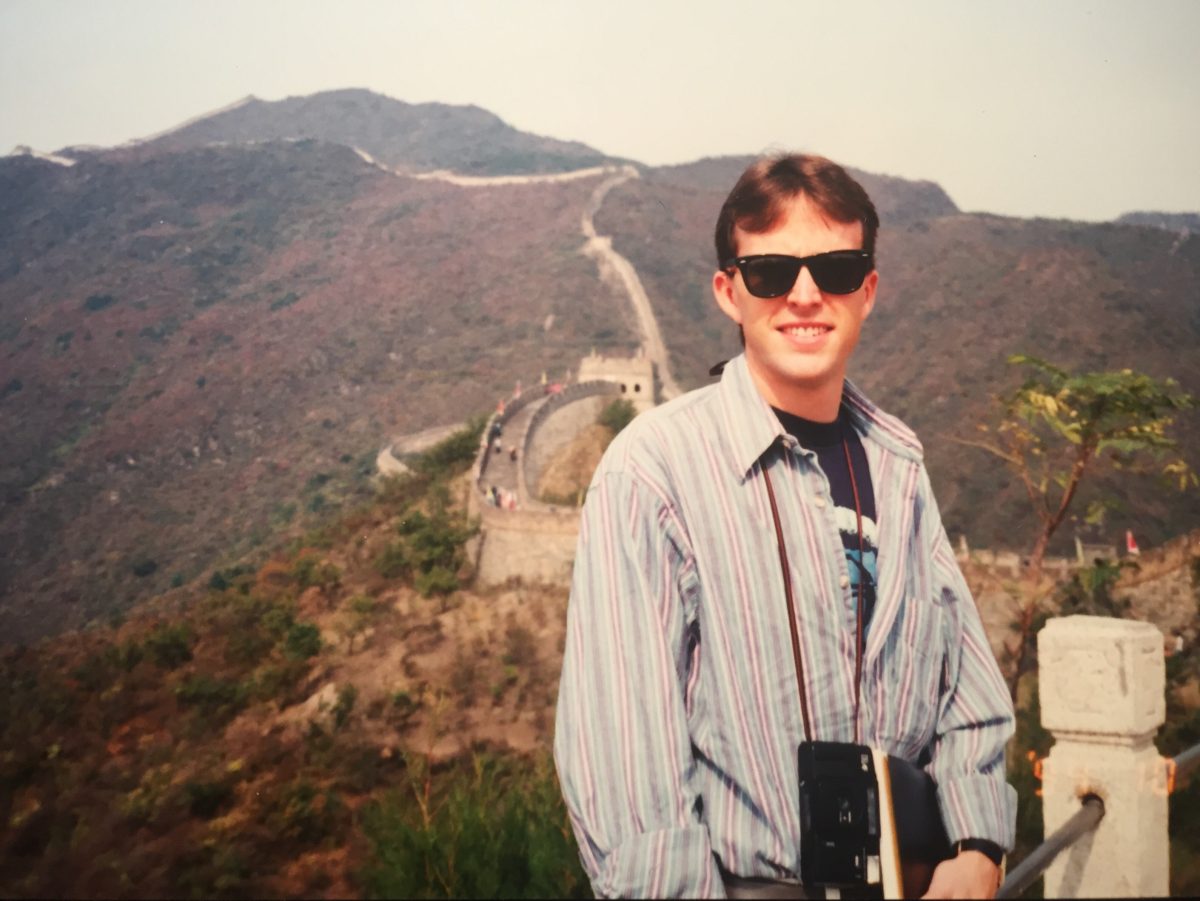The road trip comedy is an ancient and hallowed form of trash cinema, encompassing everything from It Happened One Night to Bob Hope’s career to Fear and Loathing in Las Vegas. Adele Lim knows a good road trip story when she sees one. Crazy Rich Asians, the film she wrote in 2018, was a light romp about Asian-American immigrants going back to discover their roots. That’s the same territory she explores with her directorial debut, Joy Ride — only this time, she explores it with exploding rectal cocaine balloons.
Audrey (Ashley Park) and Lolo (Sherry Cola) have been best friends since they met as primary-schoolers in their suburb, White Hills. True to the name, Audrey and Lolo are the only Asian kids in their school. Audrey is the adopted daughter of white parents, while Lolo’s parents own the local Chinese restaurant. The friends, who never miss an opportunity to turn a photo op into a flippy, are a perfect match. Audrey’s the overachiever brought out of her shell by Lolo’s free spirit, and in turn she keeps Lolo from diving off the deep end. Together, they terrorize White Hills until they leave for college and go their separate ways.
Lim and writers Cherry Chevapravatdumrong and Teresa Hsiao set the plate for the adult hijinks to ensue with such verve, I would have watched an entire film of the adventures of Young Audrey and Lolo.
Flash forward to the present day, where Audrey is an overachieving associate at a white-shoe law firm who regularly bests her office of hard-charging white males on the squash court. Her boss Frank (Timothy Simons) taps her for a crucial trip to Beijing, where she will close big deal with Chao (Ronny Chieng), a Chinese tycoon. Lolo is living rent-free in Audrey’s garage while she pursues her art projects, which include an “adult playground” with vagina-shaped slides. Audrey takes Lolo along as her translator, warning that this is not a fun-filled girl’s trip, but a serious business venture. But Lolo has already invited her cousin Deadeye (Sabrina Wu), a nonbinary Gen Z K-pop stan.
In Beijing, Audrey meets up with her college roommate Kat (Stephanie Hsu), a successful actress on the set of her TV show The Emperor’s Daughter. Lolo, as Audrey’s childhood best friend, is instantly jealous of her college best friend. When the fast friends learn that Audrey is meeting Chao in a swanky nightclub, they tag along. Audrey first struggles to keep Chao on task, and then struggles to not vomit from the Thousand Year Old Egg shots. When she loses that struggle, the only way to salvage the deal is to accept Chao’s invitation to his mother’s birthday party. He insists she bring her birth mother, whom Audrey has never met. The gang sets out on a high-speed train trip through “real China” to find Audrey’s parentage, which results in one raunchy comedic misunderstanding after another.
Joy Ride is the kind of post-Animal House comedy Hollywood used to mass-produce, with a difference. Lim’s directorial style is an unapologetically female gaze — this film is filled with good-looking men with their shirts off. She’s at her best when playing in the Bridesmaids mode of women finding freedom through over-the-top raunch, such as when our heroes disable a basketball team with a night of cocaine-crazed sex, or the Cardi B-inspired musical number that results when the gang is forced to impersonate a K-pop band. The only reason it doesn’t fall into a pit of sentimentality when the search for Audrey’s mom gets serious is that the excellent ensemble cast steps up to sell it. It’s that camaraderie that makes Joy Ride worth it.

